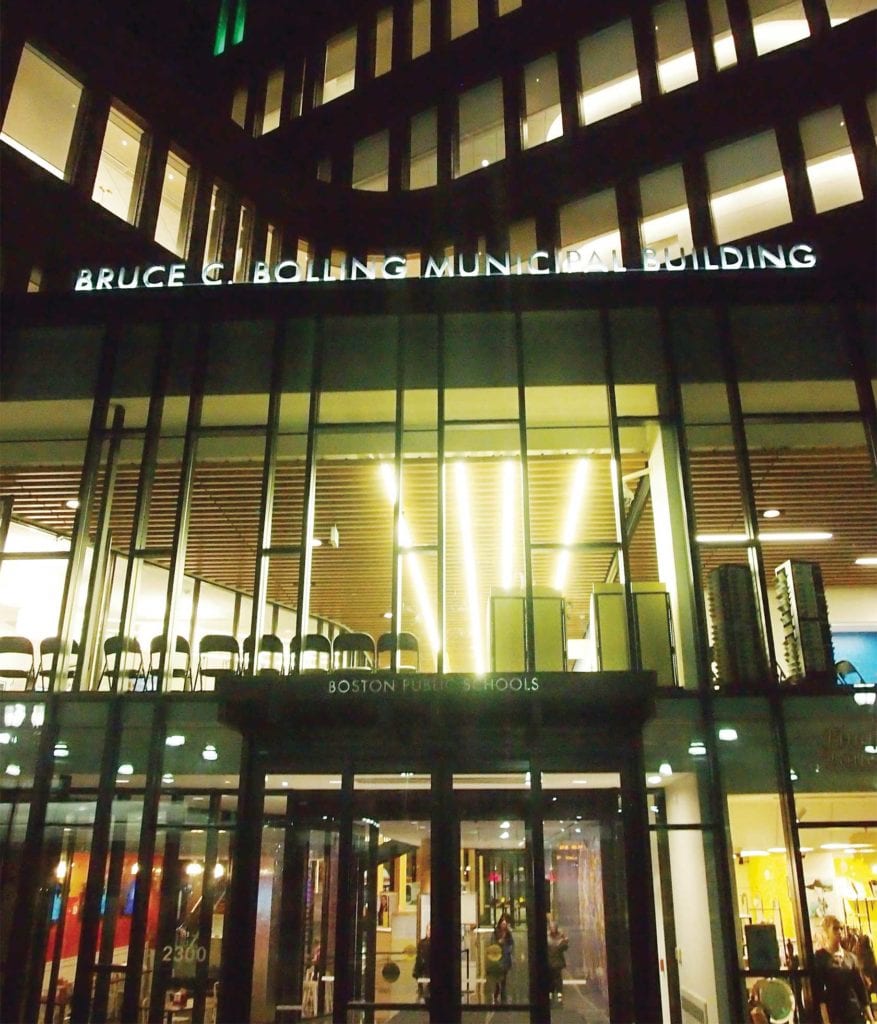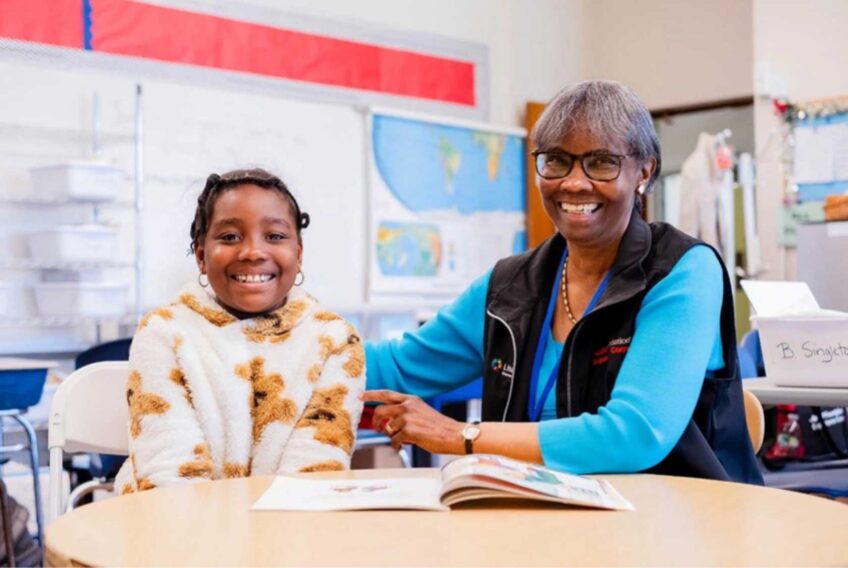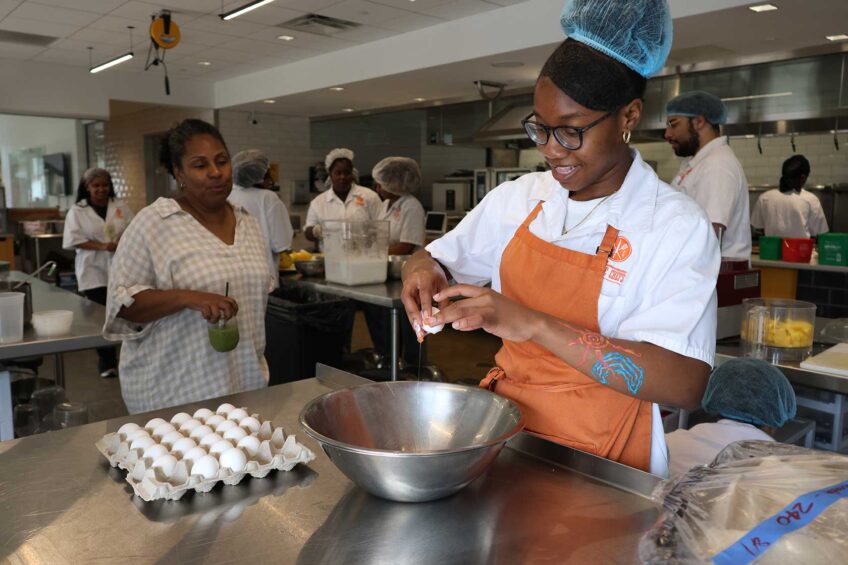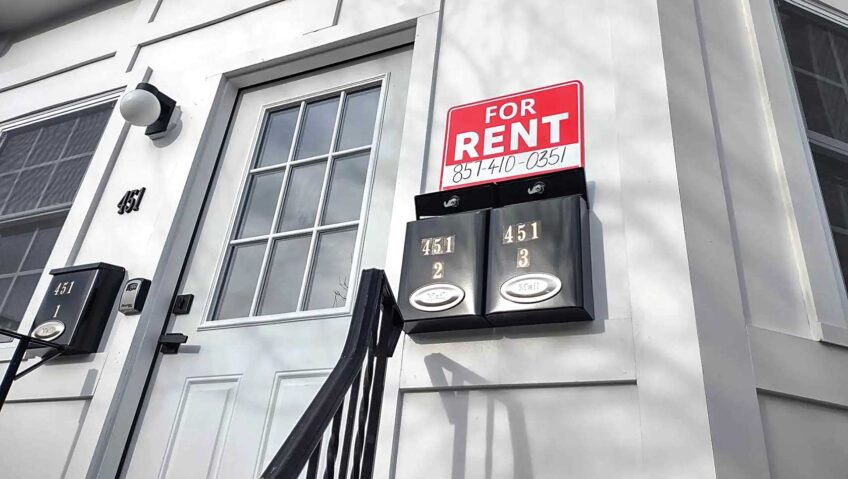
Yawu Miller
More than 40% of students in Boston’s public schools don’t have a library in their building, including one-third of the high school students who do not attend the city’s three exam schools, according to a survey made public by a coalition of education activists.
Half of all students in K-8 schools and middle schools don’t have a science lab. One-tenth of students in K-8, elementary and middle schools don’t have a music teacher, the survey found.
Members of the BuildBPS Stakeholders Coalition culled information from 190 responses they received from a survey of BPS parents representing 70% of BPS schools. The survey also found many schools lacking basic necessities such as working water fountains and clean bathrooms.
“We’re trying to make sure all our children have an equitable education and can become a whole person,” said Willie Bodrick II, chair of the Boston Network for Black Student Achievement. “Not having access to libraries, music or art shapes the educational experiences students have that will allow them to grow into the adults we want them to be.”
The survey also examined how many schools had key student support staff such as guidance counselors (64%), social workers (71%), family liaisons (57%) and psychologists (72%).
The coalition members said BPS staff refused to provide data for their report. They acknowledged that the results are imperfect, as they did not receive responses from 30% of the schools in the district.
Asked whether it was true that the district would not provide such data, a BPS spokesperson did not comment. The Banner also asked whether the district has conducted any analysis of how much it would cost to provide every student with access to a librarian, art and music classes, a functioning science lab and other services.
Rather than answering the two questions, the BPS spokesperson sent the following statement:
“Our Offices of Finance and Academics are reviewing the findings of the data presented, which would require longer term analysis. We will continue to keep you and the BPS [community] updated on our budget, BuildBPS planning, and the like. Our goal is always to present the most accurate and comprehensive data for public consumption. Unfortunately, this will not allow accommodation for your deadline.”
Coalition members said they did receive a copy of a draft central office library staff spreadsheet that showed 40% of students attend schools with no library staff, a finding that closely matches the data they collected.
The survey found Black and Latino students are more likely to attend schools without libraries and other amenities than are white students. This is partly due to the higher concentrations of white students in exam schools, which are better resourced, and partly due to the greater capacity of white parents to raise funds for their schools to pay for programs such as music and art.
BPS officials last year introduced their yearly budget presentation with the goal outlined in its Opportunity and Achievement Gaps policy: “Every child, in every classroom, in every school of the Boston Public Schools system has the same opportunity to achieve the greatness within them as anyone else.”
Yet BuildBPS Stakeholders Coalition members say the district is failing to meet that goal by not delivering adequate funding to provide equal opportunities for all students.

Brenda Cassellius. BANNER PHOTO
“The city is not spending what it needs to spend to do what it says it wants to do,” said Barbara Fields of the Black Educators Alliance of Massachusetts. “If we are to provide the kind of education we say we want to provide, we have to look at what’s needed and provide the resources.”
BPS relies heavily on a weighted student funding system, which channels money to schools on a per-pupil basis. While the system was thought to be more fair than the previous system, in which funding was often allocated based which school communities had better political connections, a problem with the per-pupil system is that fluctuations in student populations often force school leaders to cut staff positions.
Those positions are often librarians, art teachers, school counselors and other positions that schools aren’t required to have under BPS regulations.
In recent years, parent activists have called for a foundation budget for schools, one that would require funding for librarians, nurses, counselors, school psychologists and other positions many say are key to ensuring all students have an equal opportunity.
Last year, BPS Superintendent Brenda Cassellius took a step in that direction, using $36 million in funding to ensure that the 33 BPS schools the state Department of Elementary and Secondary Education put on its list of lowest-performing schools have family liaisons, social workers and other specialists.
But Community Coalition 4BPS members say the district must do more.
“Boston is not a poor city,” Fields said. “There is no reason we can’t provide for our children. If we truly want them to excel, we have to pay for it.”







